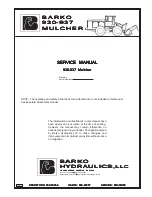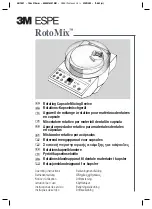Reviews:
No comments
Related manuals for Surveyor MSQ Plus

930
Brand: OMCA Pages: 72

930
Brand: Barko Hydraulics Pages: 92

6500
Brand: Eclipse Combustion Pages: 46

Duet
Brand: Bard Pages: 2

FL Series
Brand: C.M.O Pages: 10

A3000
Brand: Yamaha Pages: 50

PT Series
Brand: A&D Pages: 30

1100
Brand: DAKO Pages: 25

RotoMix
Brand: 3M ESPE Pages: 50

WS Series
Brand: VACGEN Pages: 13

TO1500L
Brand: XanLite Pages: 4

GA500 series
Brand: YASKAWA Pages: 81

Varispeed f7
Brand: YASKAWA Pages: 52

Light Bar
Brand: VelociRAX Pages: 4

Katana
Brand: ABM Pages: 17

FLOOReco 5164-040120
Brand: DOTLUX Pages: 10

SBT247
Brand: Ultratune Pages: 12

ezcap289
Brand: EzCAP Pages: 15

















